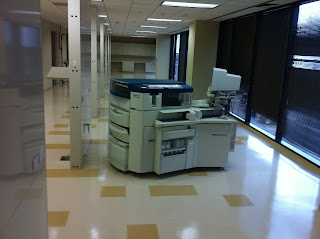
July 14, 2011 By Robert Graham Reporting from Baylor College of Medicine Houston Texas -----< Business--Wire>
Genomics and Gastric bypass surgery -- decreases the incidence of Breast Cancer by 80%
Gastric bypass procedures (GBP) is operations that divides the stomach into a small upper pouch and a much larger lower "remnant" pouch and then re-arranges the small intestine to allow both pouches to stay connected to it. Surgeons have developed several different ways to reconnect the intestine, thus leading to several different GBP names. Any GBP leads to a marked reduction in the functional volume of the stomach, accompanied by an altered physiological and physical response to food
Hybrid GenConnect Inc estimated 908,000 people in the U.S. had gastric bypass, gastric banding , or some other form of bariatric.

Candidates for bariatric surgery include those who are morbidly obese, which for most people means being 100 or more pounds overweight or having a body mass index (BMI) of 40 or more.
A 5-foot, 8 -inch person who weighs 250 or more would be considered morbidly obese, as would someone who is 6 feet tall and weighs at least 295 pounds.
Hybrid GenConnect Inc and others studied 900,000 adults followed for 16 years, Calle, et al, found the death rate from cancer was increased by 52 percent in men and 62 percent in women when the initial BMI was 40 or more. Cancers of the esophagus, colon and rectum, liver, gall bladder, pancreas, kidney, non-Hodgkins lymphoma and multiple myeloma were increased in both men and women. Stomach and prostate cancer was increased in men. Breast, uterus, cervix and ovary cancer were increased in women. They estimated, on the basis of this study, that overweight and obesity could account for 14 percent of all cancer deaths in the United States in men and 20 percent in women.
The newly reported study included 1,035 morbidly obese patients who underwent bariatric surgery between 1986 and 2002 and 5,746 patients matched for age, gender, and duration of morbid obesity who did not have surgery.
During five years of follow-up, 21 (2%) surgically treated patients were diagnosed with cancer, compared to 487 (8.5%) of nonsurgically treated patients.
The bariatric surgery patients had an 85% lower incidence of breast cancer, a 70% lower incidence of colon and pancreatic cancer, a 50% lower incidence of non-Hodgkin's lymphoma, and a 60% lower incidence of skin cancer
Adding years to your life after being Diagnosed with breast cancer is to take a breast cancer test using semiconductor sequencing to find P53,P63,BRCA1 and BRCA2 the major genes related to hereditary breast cancer. Women who have inherited certain mutations in these genes have a high risk of developing breast cancer, ovarian cancer, and several other types of cancer during their lifetime.
Hybrid GenConnect breast cancer Assay is a unique diagnostic tests
that can help patients and their doctors make informed,
individualized treatment decisions.
The American Society of Clinical Oncology® (ASCO®) and the
National Comprehensive Cancer Network® (NCCN®) have
included that genomics assay in their guidelines as an option
to predict whether certain patients will benefit from different
Therapies.